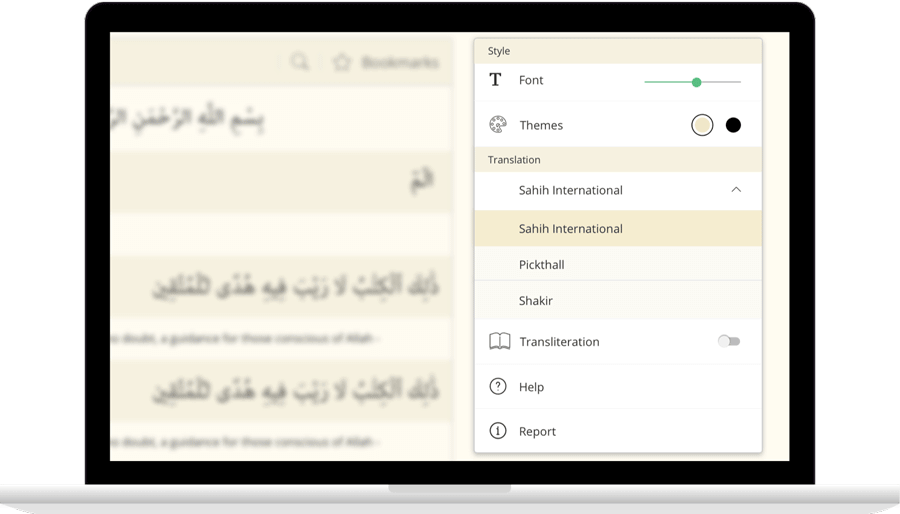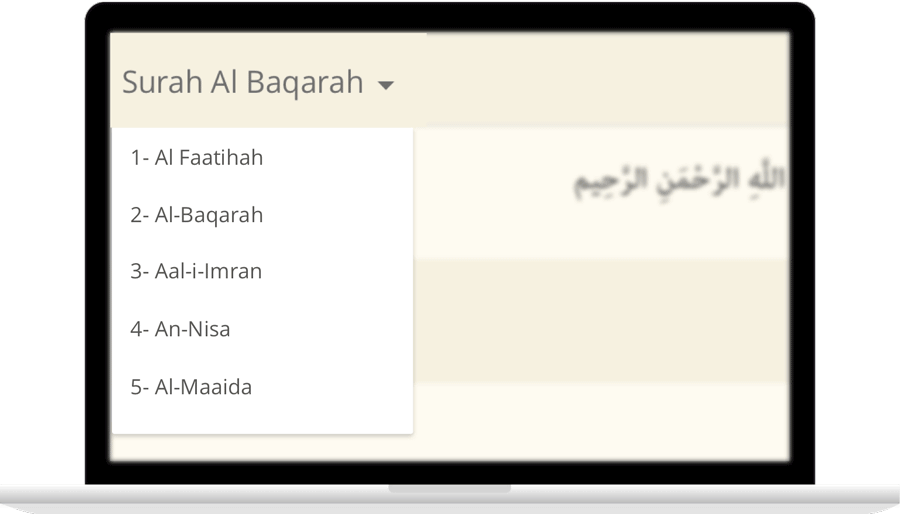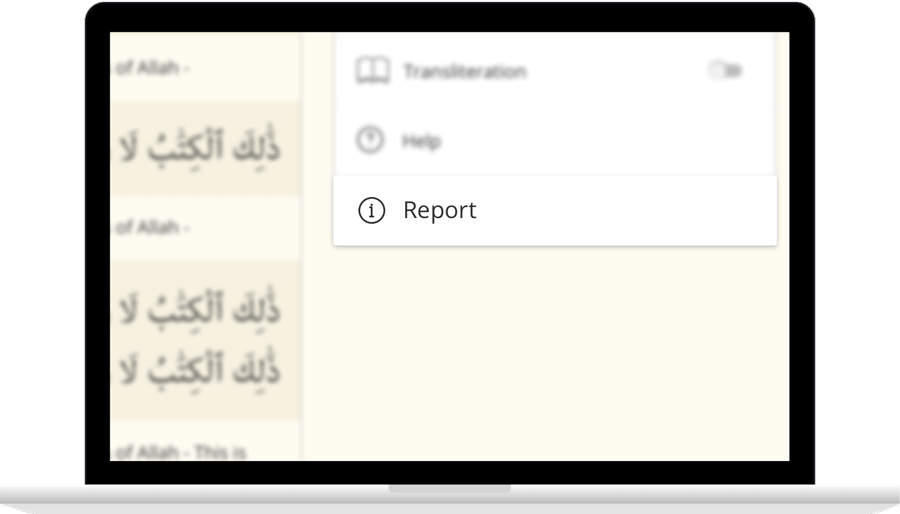قراءة سورة النساءمع الترجمة
وَءَاتُوا۟ ٱلْيَتَٰمَىٰٓ أَمْوَٰلَهُمْ وَلَا تَتَبَدَّلُوا۟ ٱلْخَبِيثَ بِٱلطَّيِّبِ وَلَا تَأْكُلُوٓا۟ أَمْوَٰلَهُمْ إِلَىٰٓ أَمْوَٰلِكُمْ إِنَّهُۥ كَانَ حُوبًا كَبِيرًا
وَإِنْ خِفْتُمْ أَلَّا تُقْسِطُوا۟ فِى ٱلْيَتَٰمَىٰ فَٱنكِحُوا۟ مَا طَابَ لَكُم مِّنَ ٱلنِّسَآءِ مَثْنَىٰ وَثُلَٰثَ وَرُبَٰعَ فَإِنْ خِفْتُمْ أَلَّا تَعْدِلُوا۟ فَوَٰحِدَةً أَوْ مَا مَلَكَتْ أَيْمَٰنُكُمْ ذَٰلِكَ أَدْنَىٰٓ أَلَّا تَعُولُوا۟
وَءَاتُوا۟ ٱلنِّسَآءَ صَدُقَٰتِهِنَّ نِحْلَةً فَإِن طِبْنَ لَكُمْ عَن شَىْءٍ مِّنْهُ نَفْسًا فَكُلُوهُ هَنِيٓـًٔا مَّرِيٓـًٔا
وَلَا تُؤْتُوا۟ ٱلسُّفَهَآءَ أَمْوَٰلَكُمُ ٱلَّتِى جَعَلَ ٱللَّهُ لَكُمْ قِيَٰمًا وَٱرْزُقُوهُمْ فِيهَا وَٱكْسُوهُمْ وَقُولُوا۟ لَهُمْ قَوْلًا مَّعْرُوفًا
وَٱبْتَلُوا۟ ٱلْيَتَٰمَىٰ حَتَّىٰٓ إِذَا بَلَغُوا۟ ٱلنِّكَاحَ فَإِنْ ءَانَسْتُم مِّنْهُمْ رُشْدًا فَٱدْفَعُوٓا۟ إِلَيْهِمْ أَمْوَٰلَهُمْ وَلَا تَأْكُلُوهَآ إِسْرَافًا وَبِدَارًا أَن يَكْبَرُوا۟ وَمَن كَانَ غَنِيًّا فَلْيَسْتَعْفِفْ وَمَن كَانَ فَقِيرًا فَلْيَأْكُلْ بِٱلْمَعْرُوفِ فَإِذَا دَفَعْتُمْ إِلَيْهِمْ أَمْوَٰلَهُمْ فَأَشْهِدُوا۟ عَلَيْهِمْ وَكَفَىٰ بِٱللَّهِ حَسِيبًا
لِّلرِّجَالِ نَصِيبٌ مِّمَّا تَرَكَ ٱلْوَٰلِدَانِ وَٱلْأَقْرَبُونَ وَلِلنِّسَآءِ نَصِيبٌ مِّمَّا تَرَكَ ٱلْوَٰلِدَانِ وَٱلْأَقْرَبُونَ مِمَّا قَلَّ مِنْهُ أَوْ كَثُرَ نَصِيبًا مَّفْرُوضًا
وَإِذَا حَضَرَ ٱلْقِسْمَةَ أُو۟لُوا۟ ٱلْقُرْبَىٰ وَٱلْيَتَٰمَىٰ وَٱلْمَسَٰكِينُ فَٱرْزُقُوهُم مِّنْهُ وَقُولُوا۟ لَهُمْ قَوْلًا مَّعْرُوفًا
وَلْيَخْشَ ٱلَّذِينَ لَوْ تَرَكُوا۟ مِنْ خَلْفِهِمْ ذُرِّيَّةً ضِعَٰفًا خَافُوا۟ عَلَيْهِمْ فَلْيَتَّقُوا۟ ٱللَّهَ وَلْيَقُولُوا۟ قَوْلًا سَدِيدًا
إِنَّ ٱلَّذِينَ يَأْكُلُونَ أَمْوَٰلَ ٱلْيَتَٰمَىٰ ظُلْمًا إِنَّمَا يَأْكُلُونَ فِى بُطُونِهِمْ نَارًا وَسَيَصْلَوْنَ سَعِيرًا
يُوصِيكُمُ ٱللَّهُ فِىٓ أَوْلَٰدِكُمْ لِلذَّكَرِ مِثْلُ حَظِّ ٱلْأُنثَيَيْنِ فَإِن كُنَّ نِسَآءً فَوْقَ ٱثْنَتَيْنِ فَلَهُنَّ ثُلُثَا مَا تَرَكَ وَإِن كَانَتْ وَٰحِدَةً فَلَهَا ٱلنِّصْفُ وَلِأَبَوَيْهِ لِكُلِّ وَٰحِدٍ مِّنْهُمَا ٱلسُّدُسُ مِمَّا تَرَكَ إِن كَانَ لَهُۥ وَلَدٌ فَإِن لَّمْ يَكُن لَّهُۥ وَلَدٌ وَوَرِثَهُۥٓ أَبَوَاهُ فَلِأُمِّهِ ٱلثُّلُثُ فَإِن كَانَ لَهُۥٓ إِخْوَةٌ فَلِأُمِّهِ ٱلسُّدُسُ مِنۢ بَعْدِ وَصِيَّةٍ يُوصِى بِهَآ أَوْ دَيْنٍ ءَابَآؤُكُمْ وَأَبْنَآؤُكُمْ لَا تَدْرُونَ أَيُّهُمْ أَقْرَبُ لَكُمْ نَفْعًا فَرِيضَةً مِّنَ ٱللَّهِ إِنَّ ٱللَّهَ كَانَ عَلِيمًا حَكِيمًا
Contact Us










